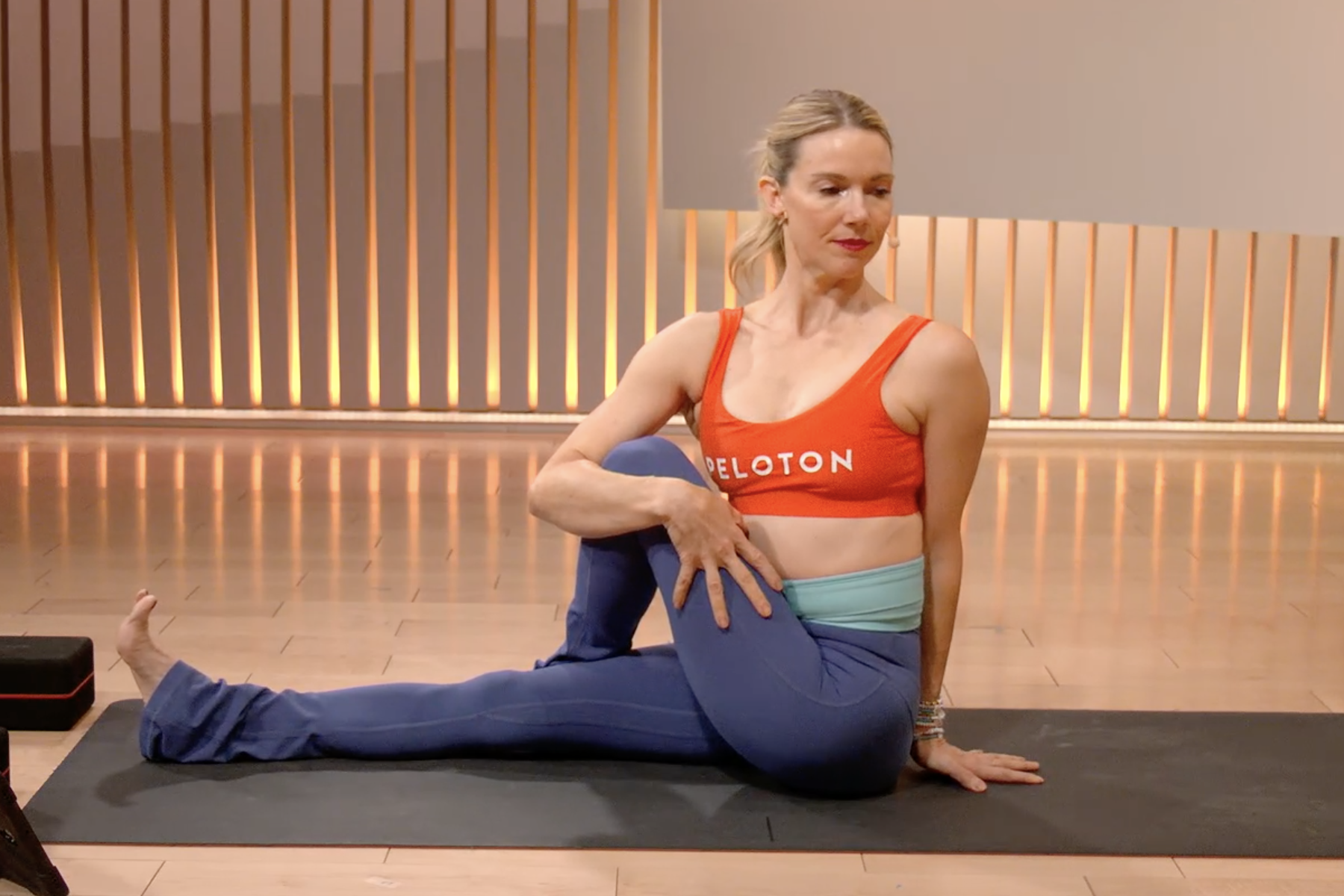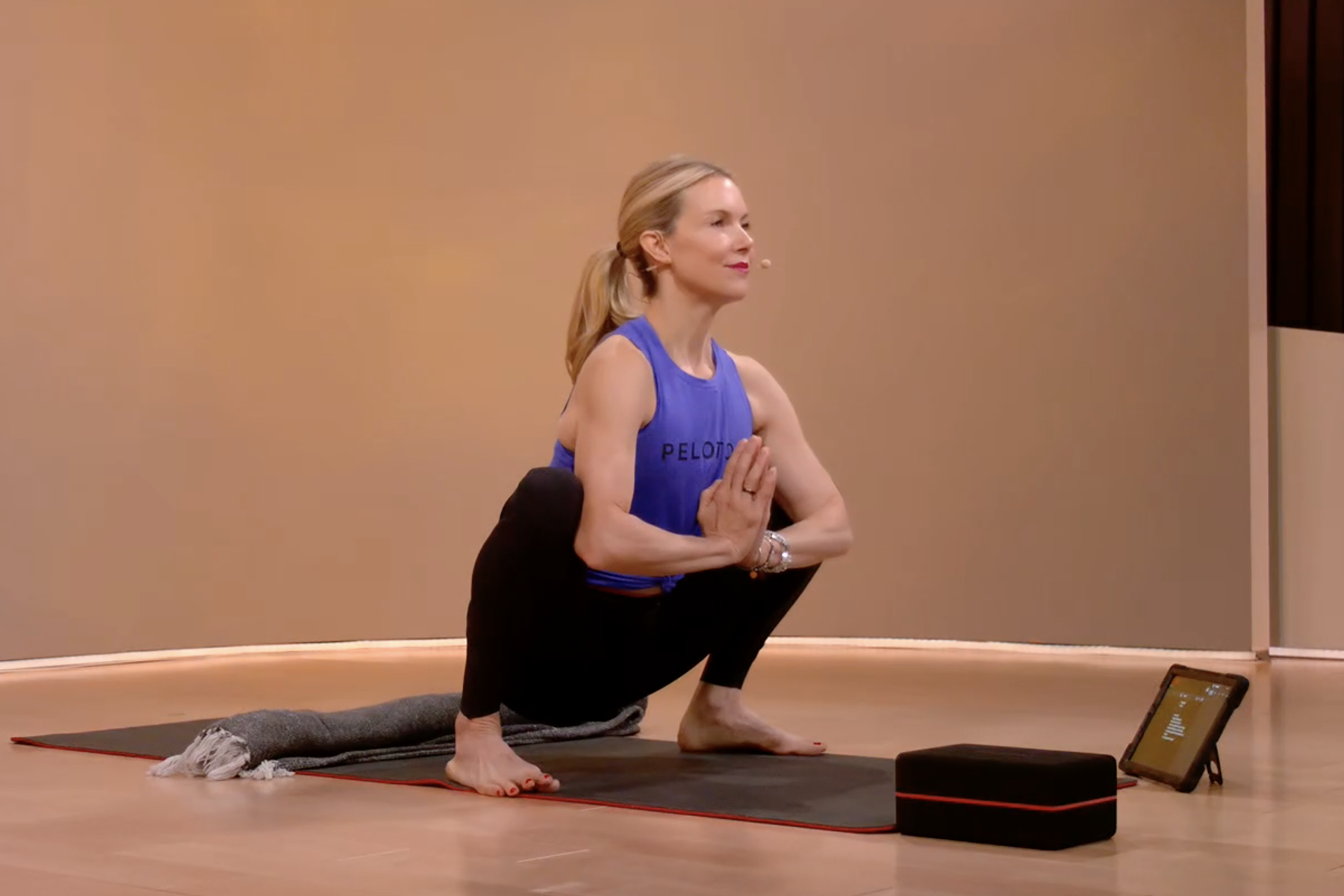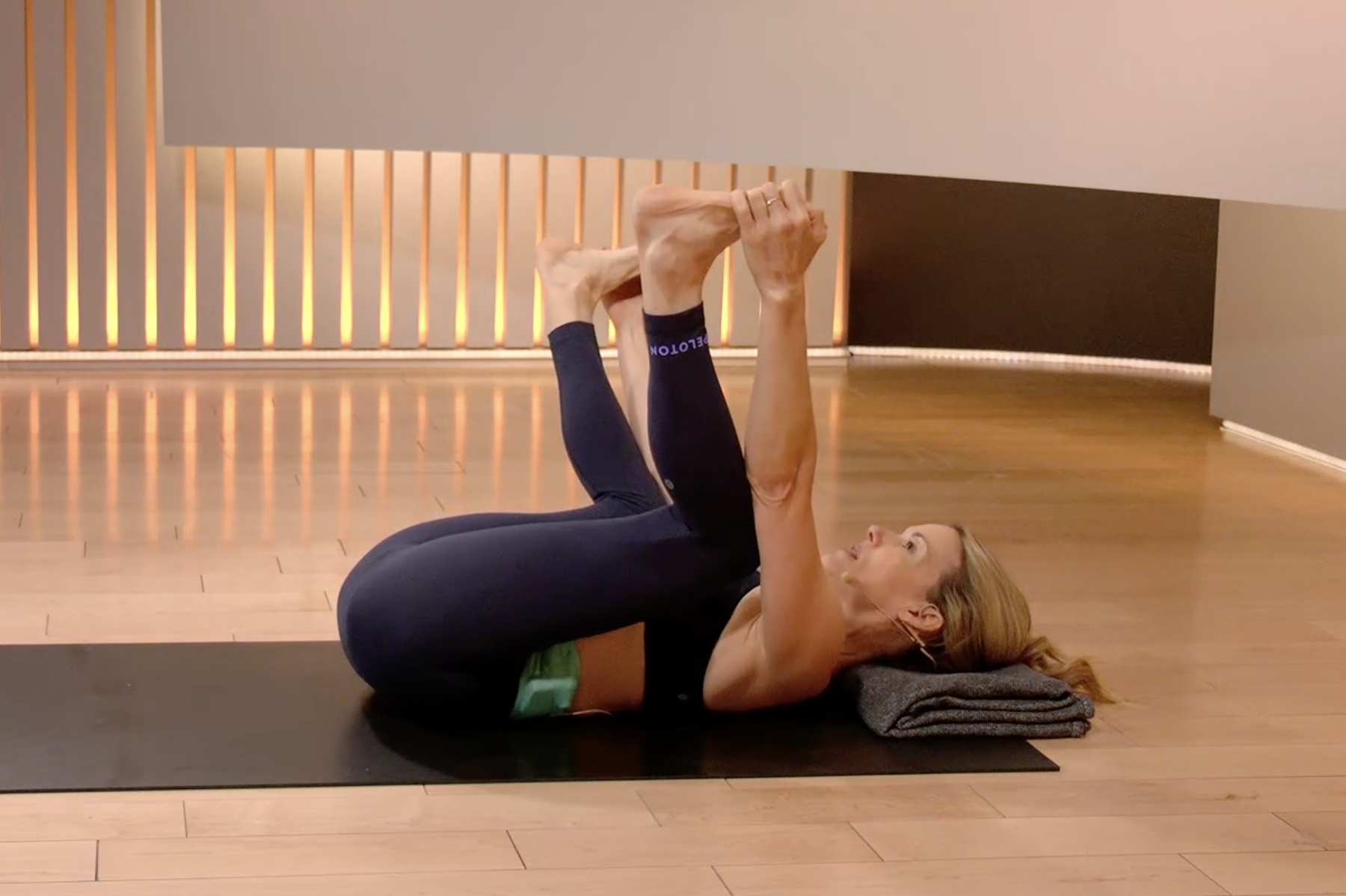
Hiraman/E+ via Getty Images
Feeling Bloated? These 6 Yoga Poses May Offer You Some Relief
Say goodbye to some of that digestive discomfort.
By Michele Ross•
Bloating is… uncomfortable. It’s also common. According to the Cleveland Clinic, between 10 and 25 percent of people experience occasional bloating. Of that group, almost 75 percent of them classify the condition as moderate to severe.
Unfortunately, there’s no one instigator of bloating. Rather, it can be caused by eating certain foods (such as produce that’s high in fiber), digestive disorders, gut imbalances, and even stress. While bloating itself is far from pleasant, you may be able to find some relief from certain yoga poses.
How Yoga Helps Alleviate Bloating
Regardless of what causes bloating, dealing with a distressed stomach is always unpleasant. However, yoga poses that target this region of your body, such as twists, can help offer some relief. (If you’ve ever heard someone expel gas during a yoga class, don’t blame them, as certain yoga poses can relieve intestinal gas quickly.)
“I personally love twists because they gently massage the internal organs and can help the gas get through our system quicker,” says Peloton instructor Kristin McGee. But variations of spinal twists aren’t the only yoga poses that alleviate the symptoms of bloating. Yoga poses that stretch your front body—especially your psoas—can help reboot your digestive system, she adds. “Sometimes a tight psoas can get in the way of digestion,” she says.
The familiar squat can also support your digestive function. Poses that incorporate this type of movement help stretch and contract your abs, which can reverse a sluggish or stagnant digestive system. The compression and release during forward folds, as well as any poses that massage the digestive organs, can also help alleviate some of that discomfort.
“Yoga postures can stimulate the lymphatic system and help get things moving,” Kristin says. “In yoga, we also practice good , and sitting up straight can even help alleviate bloating.” (In a 2003 study published in Gut, researchers noted that an upright body posture helps expel internal gas faster than laying down.)
6 Yoga Poses to Reduce Bloating
To log some mindful movement and help eliminate some of that discomfort, try the yoga poses below.

1. Seated Spinal Twist
There are many different variations of this posture, which is known as a tried-and-true yoga pose for bloating. “Twists are like wringing out the organs of digestion,” Kristin says. “I feel like they push all the gas pains down and out.”
Sit up tall. Cross your left leg over your right. Keep your right leg extended. Your left foot should be flat on the floor.
Hook your right elbow around your left knee. Use it as an anchor to twist over to the left side of your body. Keep your hips rooted to the mat.
On each inhale, lengthen your spine. On each exhale, try to twist a bit more. Hold for five to eight breaths.
Repeat on the opposite side.
2. Supine Hero Pose
Supine hero pose (supta virasana in Sanskrit) is Kristin’s go-to when she needs relief after a big meal. “It feels like a full front body stretch,” she says. This pose also helps release your psoas and the front of your thighs.
Start in a kneeling position. Your shins and feet should be flat on the mat. Keeping your knees together, lower your glutes. Your hips should sit between your feet.
Maintaining this position, slowly begin to recline onto your back, placing one elbow on the mat at a time. Continue moving backward until the crown of your head and your back touches the mat. If you need extra support in this pose, you can place a block or bolster under your upper back and/or head.
Hold for five to eight breaths.
To come out of the pose, hold onto your feet or ankles. Slowly lift your head and then torso from the mat. Return to a seated position. Repeat on the opposite side.

3. Garland Pose
Garland pose, commonly known as malasana in Sanskrit, helps open your hips—and alleviate symptoms associated with constipation and bloating.
Stand with your feet hip-width apart. Turn your toes out to a 45-degree angle.
Squat down. Keep your heels grounded on the mat. Press your elbows into the insides of your knees as you bring your palms together in front of your chest.
Hold for 30 to 60 seconds. On an inhale, return to the starting position.

fizkes/iStock / Getty Images Plus via Getty Images
4. Half Knee-to-Chest Pose
In this variation of the pose known as apanasana in Sanskrit, you’ll pull each knee into your chest, one at a time. You can also opt to bring both knees in at the same time.
Lay on your back with your legs extended out in front of you.
Pull your right knee into your chest, interlacing your fingers on top of your right shin.
Hug your right leg in toward your body. Hold for 1 minute.
Repeat on the other side.

5. Happy Baby Pose
Happy baby (or ananda balasana in Sanskrit) does more than just invite playfulness into your practice—it also helps reduce digestive distress. “This pose is awesome for releasing gas and relieving a bloated belly,” Kristin says.
Lay on your back. Bring your knees into your chest. Open your legs wider than your hips and grab onto the soles of your feet.
If you’re able, gently pull your knees in toward your armpits. Stay here or slowly rock from side to side to massage your lower back.
Hold for six to eight breaths.

6. Child’s Pose
Child’s pose, known as balasana in Sanskrit, is one of the best yoga postures for helping banish some of the uncomfortable symptoms associated with bloating. “Child’s pose is a grounding pose that can help relieve discomfort from bloating by applying pressure to the lower abdomen,” Kristin says.
Start in a kneeling position on the mat. Keep your shins and the tops of your feet flat on the ground. Position your knees a little wider than hip-width distance apart.
Rest your hips on your heels as you slowly walk your hands forward. Lower your forehead to the mat. If you have trouble bringing your forehand to the mat, use a block or bolster to bring the ground closer to you.
Bring your arms forward or back by your waist.
Hold for five to eight breaths.
The Takeaway
Yoga poses may help offer you some relief from bloating—but they won’t be able to eliminate it completely. If you’re experiencing uncomfortable bloating or digestive discomfort for an extended period of time, contact a medical provider. Always listen to your body.
This content is for informational and educational purposes only and does not constitute individualized advice. It is not intended to replace professional medical evaluation, diagnosis, or treatment. Seek the advice of your physician for questions you may have regarding your health or a medical condition. If you are having a medical emergency, call your physician or 911 immediately.
This content is for informational and educational purposes only and does not constitute individualized advice. It is not intended to replace professional medical evaluation, diagnosis, or treatment. Seek the advice of your physician for questions you may have regarding your health or a medical condition. If you are having a medical emergency, call your physician or 911 immediately.


